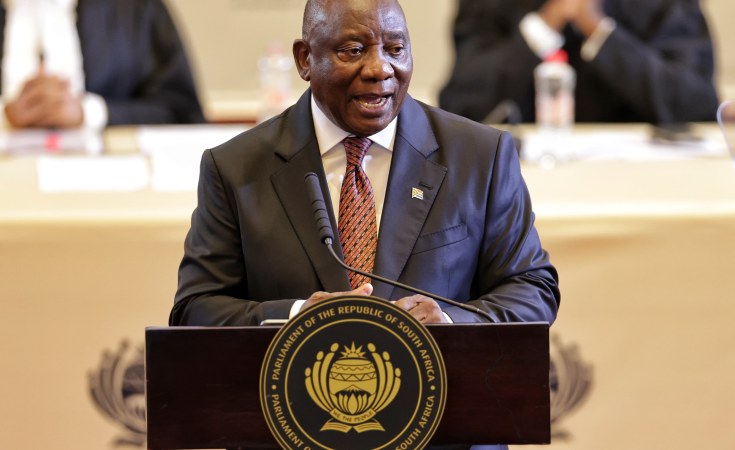President Cyril Ramaphosa's State of the Nation Address (SONA) focused on economic growth, job creation, infrastructure development, and reducing household expenses. Ramaphosa also spoke out against bullying and investing in the future of South Africa. His key announcements included significant infrastructure investment, a digital ID system, and commitments to the National Health Insurance (NHI) scheme, a Basic Income Grant (BIG), and an R100 billion fund for Black Economic Empowerment (BEE).
Some ministers rallied behind Ramaphosa - John Steenhuisen, leader of the Democratic Alliance and Minister of Agriculture, echoed the President's sentiments, saying that South Africa needs to transform its economy.
Mmapaseka Steve Letsike, Deputy Minister for Women, Youth, and Persons with Disabilities, believes that Ramaphosa outlined the government's action plan for midterm development, while Minister of Health Dr Aaron Motsoaledi expressed satisfaction that the president addressed the need to build the economy to create jobs.
COSATU acknowledged the progressive commitments made in Ramaphosa's 2025 SONA, but is concerned about the slow implementation of those commitments. The country faces numerous crises, especially the 41.9% unemployment rate, entrenched poverty and inequality, paltry economic growth, crime and corruption epidemics, struggling municipal and public services, and embattled State Owned Enterprises (SOEs).
Some parties, however, were skeptical about Ramaphosa's promises.
Deputy president of the uMkhonto Wesizwe (MK) Party, John Hlophe, said Ramaphosa's address was "hugely disappointing, uninspiring and hollow".
"The President … spoke regarding borrowing money, he's speaking about billions of rands. He doesn't tell us, however, where money is going to be borrowed from. The devil is in the details," said Hlophe.
Hlophe argued that Ramaphosa should have addressed rural infrastructure investment during his speech. He also criticized the President's vision of a united South Africa, saying that nothing has been done to "address racism in this country."
Economic Freedom Fighters (EFF) leader Julius Malema criticized Ramaphosa's SONA address, dismissing it as "nothing but waffle and empty words." Malema argued that Ramaphosa's address lacked accountability.
"There is no accountability whatsoever. He says they will create jobs, but he uses this platform to come and waffle. He says he will create jobs but doesn't explain where and how. He mentions infrastructure development, with lots of money allocated, but where and how? It looks like there's no plan, just utterances."
Activist Athol Trollip expressed disappointment in Ramaphosa's speech. "I said this morning this would be the acid test of how much influence the GNU has in this government and I can just say this was vintage Ramaphosa - nothing has changed".
Steenhuisen, leader of the Democratic Alliance said President Ramaphosa had "diagnosed the problems perfectly" in his speech. However, he said that the speech lacked urgency.
The Green Connection, an environmental and energy justice organization, welcomed the government's focus on renewable energy as a driver of economic growth and job creation. However, the organization expressed concern over the choice to develop Boegoebaai Harbour for green hydrogen despite local opposition and existing challenges at Port Nolloth and asked why alternative energy sources were not prioritized, particularly given the Northern Cape's solar potential.
Earthlife Africa's Director, Makoma Lekalakala, criticized the lack of updates on the Just Energy Transition fund and the absence of a moratorium on carbon-intensive projects, urging greater accountability for climate change-induced disasters and the establishment of the climate change relief fund.
South Africa's members of Parliament will convene again in a joint sitting of the National Assembly (NA) and the National Council of Provinces (NCOP) on February 11 and 12 to debate the Address. Ramaphosa will reply to the debate on February 13.
Edited by Juanita Williams


